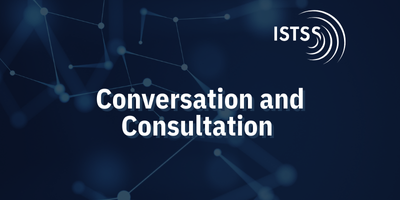Bringing Together Clinicians and Researchers From Around the World to Advocate for the Field of Traumatic Stress.
Healing Trauma Together
The International Society for Traumatic Stress Studies is dedicated to sharing information about the effects of trauma and the discovery and dissemination of knowledge about policy, program and service initiatives that seek to reduce traumatic stressors and their immediate and long-term consequences. ISTSS is an international interdisciplinary professional organization that promotes advancement and exchange of knowledge about traumatic stress.
Late-Breaking Poster Abstracts for the ISTSS 40th Annual Meeting
Deadline: Friday, July 26, 2024
All too often, research isn't completed when ISTSS abstract submissions close. ISTSS is excited to offer this opportunity to submit a late-breaking poster submission for the 40th Annual Meeting.
Only poster abstract submissions will be considered.
The ISTSS 40th Annual Meeting will focus on innovative strategies to apply basic science knowledge to the assessment and treatment of traumatic stress, as well as on the translation of scientific findings into actionable interventions for the global community. In pursuit of this goal, we seek submissions specific to the field of traumatic stress on topics related—but not limited—to:
- Application of biomedical science findings to inform assessments and interventions for traumatic stress symptoms/disorders.
- Research investigating the psychological, biological, social and behavioral mechanisms that underlie post-trauma mental health.
- Research taking a life course perspective to address to address the spectrum of translational science research.
- Evidence-based practices and innovative research in basic science, intervention development and implementation, and policy.
- Innovative transdiagnostic treatment approaches addressing the myriad consequences of trauma.
- Cutting-edge research methodologies and statistical frameworks for translational science research.
- Ethical implications and considerations associated with the application of translational science in traumatic stress studies.
- Ways to effectively communicate and disseminate research to different stakeholders.
- Ways to cultivate translational science and interdisciplinary exchange.
- Challenges and debates in the area of translational science.
- Translational science as applicable to the global community.
Registration is Now Open!
Join us in Boston on September 25-28, 2024 for the ISTSS 40th Annual Meeting. The ISTSS Annual Meeting provides a forum for the dissemination of theoretical work, scientific research, and evidence-based clinical approaches in traumatic stress studies.
Conversations and Consultations
Our Conversations and Consultation series is a members-only series that provides members with the opportunity to exchange valuable insight and advice with subject-matter experts, mentors, and/or colleagues in the trauma field. Each session is facilitated by one or more experts and presented to ISTSS members as a free membership benefit. Check out past sessions on industry careers, part-time private practice, and our most recent session on international collaboration.
Grow Your Professional Network by Volunteering with ISTSS
Volunteers play an integral role in ISTSS' day-to-day activities and form a broad professional network. Interested in adding an ISTSS volunteer position to your CV?
Human rights and policy: PTSD treatment in US prisons: An urgent need to expand and improve – Haley Church, MA
Trauma exposure prior to incarceration is nearly ubiquitous. In a sample of 592 incarcerated men, 99% endorsed experiencing at least one lifetime traumatic experience prior to incarceration, with 59% scoring above the clinical threshold for Posttraumatic Stress Disorder (PTSD) on the PCL-5 (Wolff et al., 2014). Meta-analyses on international samples show prevalence of PTSD ranged from 0.1% to 27% for male and from 12% to 38% for female incarcerated populations (Baranyi et al., 2017). This stands in stark contrast to PTSD rates in the general population, which range between 3 to 8% (Kilpatrick et al., 2013).
Do we know what we think we know about traumatic stress? – Talya Greene, PhD
In 2020, Flake and Fried published an article entitled, "Measurement Schmeasurement," where they highlighted the threat posed by questionable measurement practices (QMPs) to psychological science. They argue that the ubiquitous use of QMPs raises doubts about the validity of our measurement of psychological phenomena which in turn challenges the validity of empirical knowledge in psychology.
Clinician’s Corner: Meeting the challenges of organizational stress: Biocratic organizations and creating presence – Sandra L. Bloom, MD
In 2022, the U.S. Surgeon General issued a report about workplace mental health and wellbeing. Many of you will not be surprised to learn that in a survey of 1,500 U.S. adult workers across for profit, non-profit and government sectors, 76% of respondents reported at least one symptom of a mental health condition, and 84% reported at least one workplace factor that had a negative impact on their mental health (Office of the U.S. Surgeon General, 2022). This means that in every mental health, healthcare and social service setting, clinicians must deal with the effects of workplace stress on their clients, while they are also trying to manage similar problems themselves. Not surprisingly, the report cites research suggesting there are five workplace attributes most predictive of whether workers refer to their organization’s culture as “toxic”: disrespect, non inclusivity, and unethical, cutthroat or abusive behavior (Sull et al., 2022).



